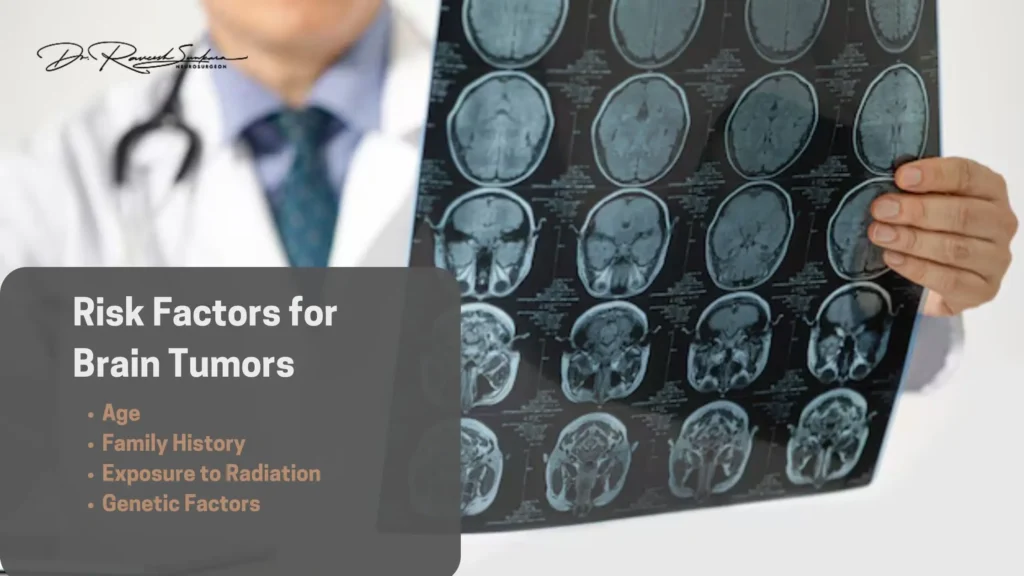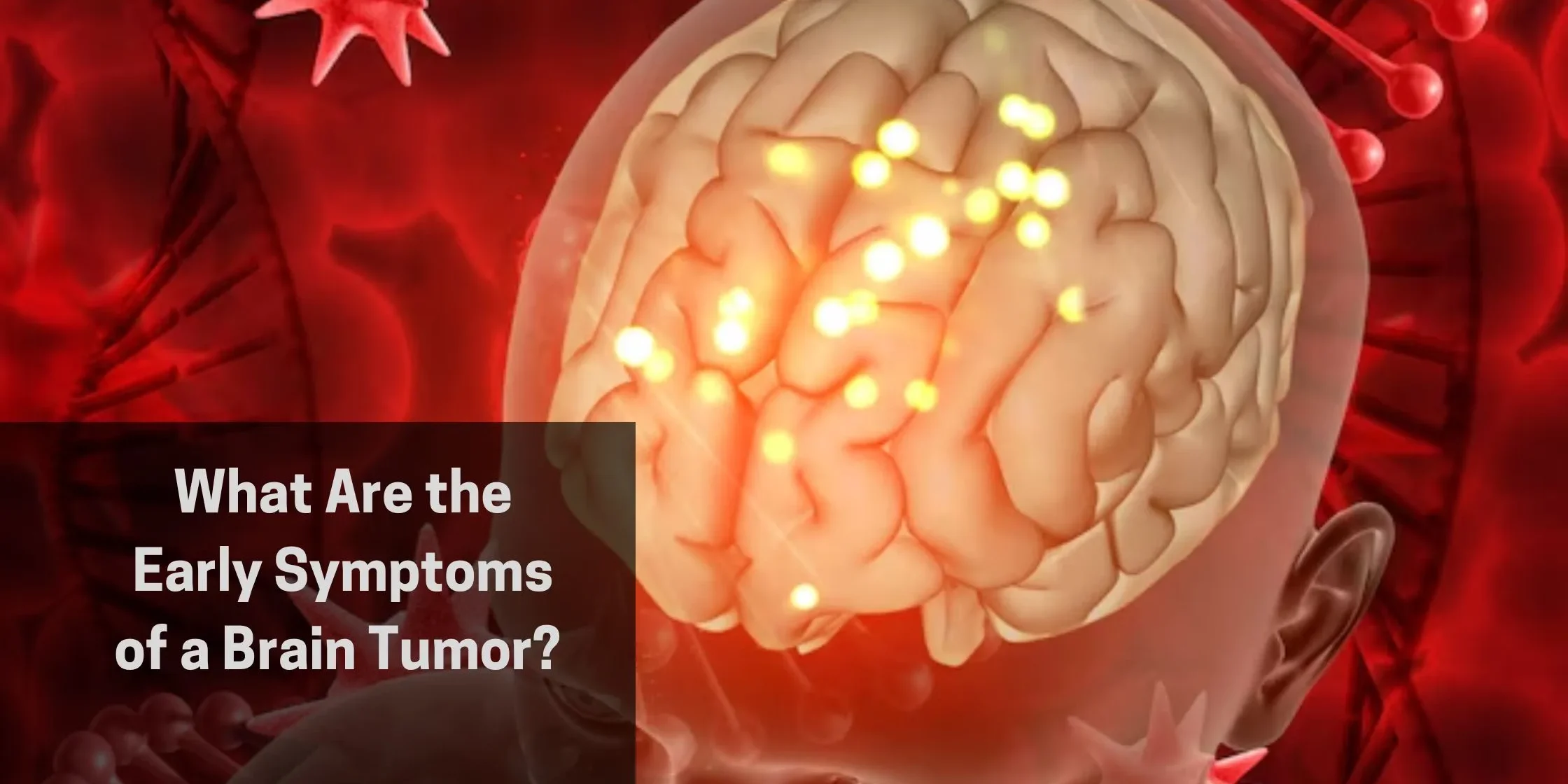Brain tumors are intimidating and frightening. It is important to know the early signs for early diagnosis and treatment. We at Dr. Raveesh Sunkara feel that identifying the signs at an early stage will lead to better results. Brain tumors can happen in various locations of the brain, causing diverse brain tumor symptoms. One should be watchful about changes in the body and get early medical attention.
In the following piece of work, we’ll discuss the common and early signs of brain tumors, the risk factors, and how early detection is important in the treatment process.
What is a Brain Tumor?
A brain tumor is an abnormal mass of brain cells. The tumors of the brain can be primary (meaning they are situated in the brain) or secondary (that is, they are from cancer, which has spread from another part of the body). Not every brain tumor is malignant, but even noncancerous tumors can start to be a problem by pressing on nearby tissues with symptoms or interfering with the brain function of the people affected.
Symptoms of health issues also depend on the size, type, and location of the tumor. Detecting the issue proactively can be lifesaving, which is why knowing the main symptoms of brain tumors is essential.
Common Symptoms of Brain Tumors

These are as follows:
- Headaches: A headache is often one of the key symptoms of a brain tumor. Generally, it means that the patient will feel the pain at any time of the day. These headaches are intense and quickly deteriorate over time. The patient may experience a promptly increased headache when moving them in the morning or by the sudden twisting or shaking of their head.
- Vision Problems: It involves an area of the brain where the vision is processed can also be due to brain tumors. They can be seen in the form of unclear vision, double vision, or even partial visual loss in the people affected. If it is noticeable to you about your vision that something is not normal, you might have an eye condition.
- Seizures: Basically, when a person has two problems, they are likely to happen. Patients who never had seizures but suddenly start having them need to quickly see a doctor.
- Personality Changes: Mood and behavioral problems may be because of tumors in some parts of the brain. The symptoms may be quite various, and they may include violent outbursts, confusion, and memory loss, which prevent people from their normal lives.
Early Brain Tumor Symptoms

The early brain tumor symptoms may largely depend on the location of the tumor. You may notice changes in your mental function, such as memory loss, confusion, and speaking problems. Under other circumstances, you may experience complete numbness or a lack of strength in a particular part of your body.
These signs can be attributed to other causes as well, but if long-lasting, it is important to obtain a proper assessment. For instance, an individual can get extremely exhausted or even feel a feeling of chronic nausea that will not subside. These are possibly linked to increased pressure on the brain caused by a tumor.
Certain Brain Tumor Sites and Their Symptoms
Possible parts of the brain that may cause specific symptoms may be the locations undergoing brain tumors:
- Brain Stem Tumors: The brain stem tumor symptoms can be extremely serious because the brain stem regulates important functions like breathing, heart rate, and swallowing. Tumors here can lead to difficulties in balance, movement, and even speech.
- Tumors in the Cerebellum: Cerebellum tumors may impact motor control, causing walking difficulty, loss of coordination, or tremors. These are serious symptoms that should not be overlooked.
- Frontal Lobe Tumors: Frontal lobe tumors may result in personality alterations, problems with concentration, or judgment changes. If a person begins to exhibit sudden changes in behavior or mental function, it could be a sign of a tumor here.
Risk Factors for Brain Tumors
Although the definite cause of brain tumors is unknown, some brain tumor risk factors can potentially raise one’s risk of developing one. These are:

- Age: These tumors are more frequent among older individuals but may also occur in the young.
- Family History: The presence of brain tumors in the family can increase the likelihood of this occurring.
- Exposure to Radiation: People who have been exposed to radiation, especially at a young age period, are at greater risk of developing brain tumors.
- Genetic Factors: Some genetic disorders, such as neurofibromatosis, can result in brain tumors with a higher risk factor.
How to Detect Brain Cancer
Early diagnosis of brain cancer is vital for the best outcome. In case you or someone else has any of these symptoms, the best thing to do is to see a specialist who can provide the right tests, such as an MRI or CT scan. How to diagnose brain tumors generally includes imaging tests to determine the presence of any abnormal growths.
If the case demands it, the biopsy will be used to determine whether the tumor is malignant or benign. Exact recognition at the earliest stage is a must for a successful treatment plan which should be both prompt and efficient. To understand the next steps after treatment, including post-surgical care, rehabilitation, and long-term management, learn more about What Happens After Brain Tumor Surgery and Recovery?.
Can Stress Cause Brain Tumors?
One of the most frequent misconceptions is that stress can give rise to brain tumors. Though stress can cause a brain tumor is a regular query, one should make clear that stress will not directly contribute to brain tumors. Stress might worsen underlying symptoms or complicate it to handle the physical and emotional burden of a diagnosis, though.
Stress management is crucial to overall health, and it can assist in enhancing quality of life throughout the treatment process. If you are having symptoms that may be a sign of a brain tumor, it is necessary to consult with a doctor instead of believing stress is the issue.
When to Seek Medical Help
If you experience any of the common symptoms of a brain tumor, it is crucial to consult a doctor without wasting time. Early treatment and diagnosis can enhance the possibility of successful treatment. If you have persistent headaches, seizures, vision disturbances, or personality changes, do not wait for the symptoms to worsen. Consult a specialist at the earliest. immediately.
At Dr. Raveesh Sunkara, we strive to deliver top-notch brain tumor treatment in India. We empathize with the stress a diagnosis might bring, and we are there for you to take care of you with precise expertise and high-tech treatment avenues. Early identification and timely action play a major role in optimizing the outcomes in patients with brain tumors.
Take Action Now for Early Detection & Treatment!
In summary, understanding the early brain tumor symptoms is crucial in the provision of timely medical attention. If you or someone you know experience any of these symptoms, do not delay—seek professional help immediately.
At Dr. Raveesh Sunkara, we provide the best brain tumor treatment in India, backed by years of expertise and state-of-the-art medical technology. Early detection is everything, and we are here to guide you through every step. Call us today for a consultation and take control of your health.
FAQs
What are the initial signs of a brain tumor?
The initial signs are frequent headaches, seizures, vision impairment, and personality changes.
How is brain cancer diagnosed
Brain cancer is diagnosed with imaging tests such as MRI and CT scans, with a biopsy if needed.
Can stress lead to brain tumors?
No, stress will not directly cause brain tumors, but it may exacerbate symptoms.
What are the risk factors for brain tumors?
Risk factors are age, family history, exposure to radiation, and specific genetic conditions.
When do I need to see a doctor for brain tumor symptoms?
If you experience frequent headaches, seizures, or behavior changes, see a doctor right away.







